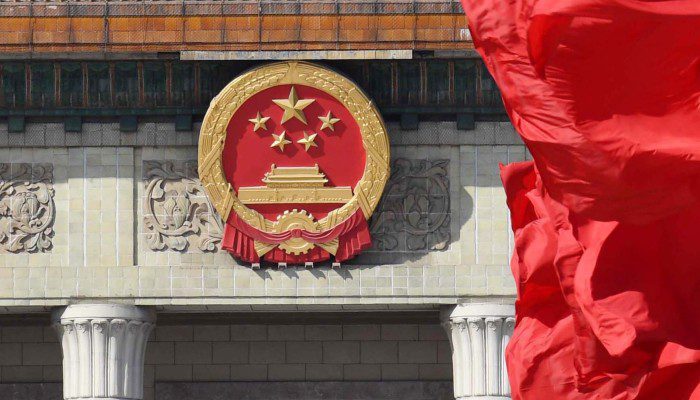When living and working in China, it’s necessary to understand your tax duties
If you live and work in China, chances are that you will have to make a tax declaration. As we’ve covered in our previous post, the Individual Income Tax Law is going through some major changes. This means, there’s no better time than now to introduce you to the processes involved!
Who has to pay tax in China?
It is necessary to distinguish from which income the tax should be paid. To keep things simple, this post will cover income sourced from China and worldwide income (income earned outside of China).
Regarding the income earned in China, things are simple. You will have to pay tax on the income derived from your service in China or properties in China.
For the worldwide income, sourced from outside of China, different conditions apply. As per law, individuals who have a ‘domicile or ‘place of abode’ in China are subject to IIT on their worldwide income. Chinese nationals are generally considered to have a domicile in China. However, foreign individuals (including residents of Hong Kong, Macau and Taiwan), will be taxed in accordance with their physical presence in the PRC.
Previously, a non-PRC national residing in China for an entire tax year would be considered a resident for tax purposes. Moreover, foreigners in China were subject to the ‘5 year tax break’ law, which ruled above the tax resident status. This means, foreigners in China paid tax from their worldwide income only after 5 years of uninterrupted residency in China. The 5 years would be reset with the ‘tax break law’ if the foreign employee spent either 30 consecutive or 90 cumulative days in a year outside of China.
Table 1: Sources of Income
As of January 1st, 2019 the definition of a PRC tax resident will be readjusted from one year to 183 days, as follows:
- Resident individuals (居民个人) – referring to those who have domicile or reside in China for a total of 183 days in a tax year while receiving income either from PRC or abroad. Resident individuals must pay income tax in accordance with the law.
- Non-resident individuals (非居民个人) – applies to individuals who do not have domicile and reside in China for less than a total of 183 days in a tax year.
This means, that a foreign individual, who resides in China for 183 day or more in a year, is considered a ‘resident’ and is thus subject to Chinese tax on their worldwide income.
It is yet to be announced, whether the ‘five year tax break’ will still apply with the new IIT Law rolling out in January 1st, 2019.
When receiving a salary from China, the employer will usually withhold taxes monthly.
For other income (i.e., stocks and investments) it is advisable to get in touch with a Chinese tax expert. Such income involves additional rules when it comes to taxation of foreign nationals. You will also be required to file a tax return if you:
- Have more than one Chinese employer
- Have income earned in China from which taxes were not withheld
“I’m a Tax Resident in China – do I also have to pay taxes at home?”
While you may be a tax resident of China, always be sure that you comply to the tax regulations of the country of whose citizenship you hold. As this will be different for every country, there is no one single pointer for each expatriate to follow.
For example, let’s look at citizens or permanent residents of the United States. They need to file US taxes with their local tax authorities each year, no matter where they live. For other countries, tax residency of an individual will be determined based on where their personal and economic relations are closer. Check with your tax authorities back at home whether you need to file a tax return on your world income.
Tax treaties – what are those?
China has bilateral agreements with 103 countries/regions preventing double taxation of passive and active income. These tax treaties determine the amount of tax that a country can apply to a taxpayer’s income and vary by country. You can find more details on each available treaty on the official page for the State Administration of Taxation of The People’s Republic of China here.
Table 2: List of countries
Information swapping
As of September 2018, the PRC will implement the Automatic Exchange of Information (AEOI) with countries abroad. The full list of countries that have activated their exchange relationships can all be found here. The exchange of information via AEOI aims to reduce global tax evasion and helps to verify the compliance of taxpayers.
This means that it will be easy for tax authorities in China to obtain information regarding each of its’ tax residents income from abroad. Likewise, China will provide information regarding the China-earned income of non tax-residents, with their respective countries.
Conclusion
With the changing IIT law in China, it is advised for expats to revise their individual tax residency situation. Remember, that as of January 1st, 2019 the definition of a PRC tax resident will be readjusted from one year to 183 days! Additionally, check the above list on whether your country has an active tax treaty with China. If so, get to know the conditions that apply for your country
Based on the above information, you will get a better overview as to which conditions apply to you.
Not sure on how to proceed or you’d love an expert to help you out? Get in touch with our experienced team of accountants and follow us on social media to receive the latest news!
Scan for our WeChat mini-program






